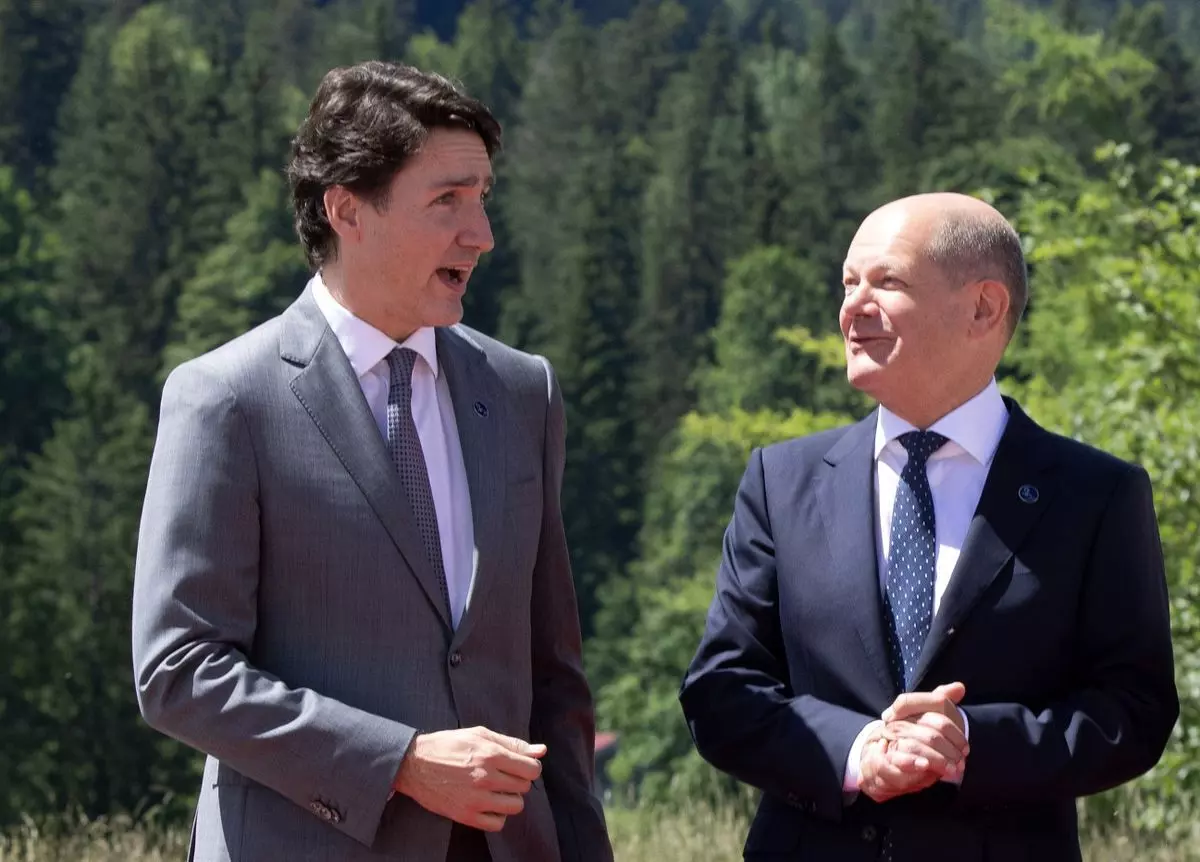
German Chancellor, Olaf Scholz and Canadian Prime Minister, Justin Trudeau, are to attend an economic conference in Toronto on Tuesday, the second day of the German leader's inaugural trip to Canada.
The two heads of government would then travel to Newfoundland, where an agreement on stronger cooperation between the two countries is expected.
The agreement on the production and transport of hydrogen would be signed in the remote town of Stephenville.
Scholz would be accompanied on the trip by his deputy, Economy Minister, Robert Habeck.
Newfoundland is considered a favourable location for the production of renewable hydrogen.
The region is very windy and sparsely populated.
The use of hydrogen did not produce greenhouse gases.
To produce it, water has to be split into hydrogen and oxygen, electrolysis that is only climate-friendly, if sustainably produced energy is used.
In principle, hydrogen can serve as a basis for fuels to replace coal, oil and natural gas in industry and transport.
Because its production was very energy-intensive, hydrogen was currently still significantly more expensive than fossil fuels.




